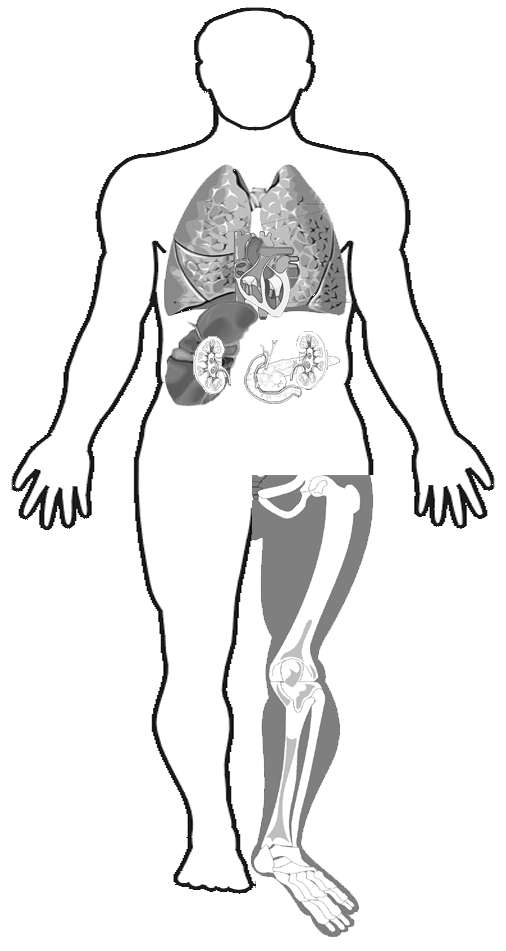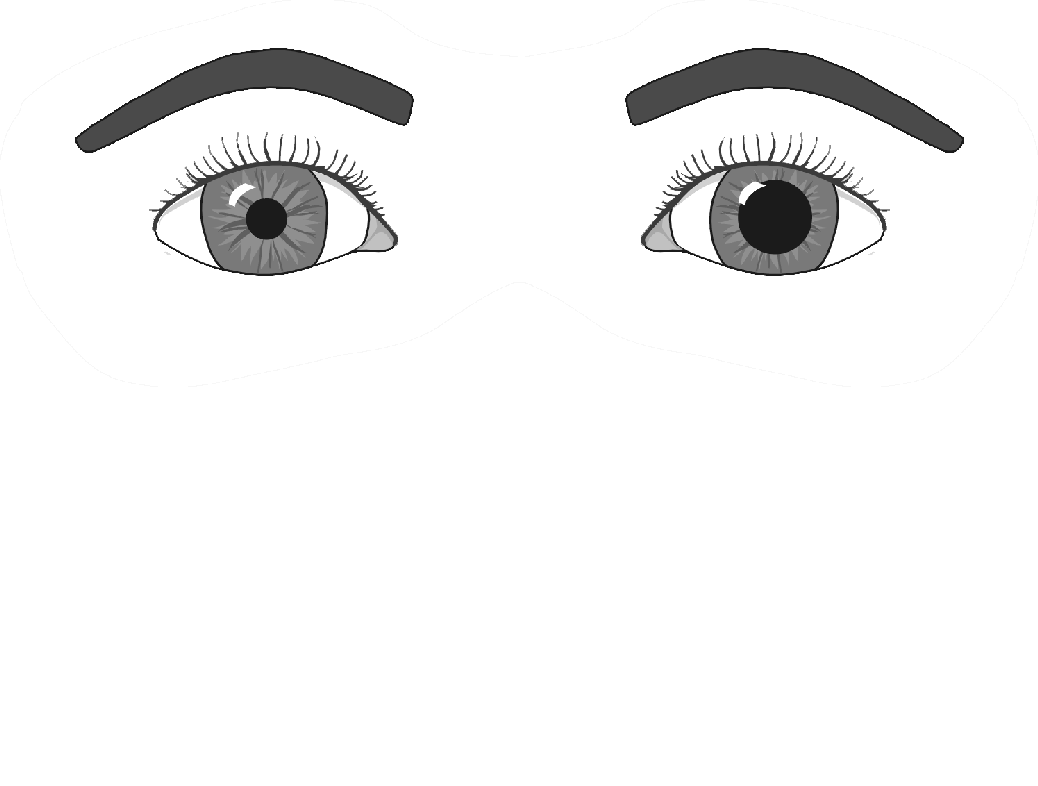Organ Donation: A Gift of Life
There are stars whose radiance is visible on earth though they have long been extinct. There are people whose brilliance continues to light the world though they are no longer among the living. These lights are particularly bright when the night is dark.
Hannah Senesh
Death is a fact of life! We are born to live and die. In the words of Tagore, “Death belongs to life as birth does. The walk is in the raising of the foot as the laying of it down.” Some might assume that death is the end of life. But a person can live on even after death. And death can be made as meaningful as life by giving the precious gift of life to many terminally ill patients by donating your organs.
Life is too precious to be lost to an organ failure. But millions have lost their lives when a vital organ ceased to function properly. The fact is that medical advances in the field of transplant immunology, surgical management, and organ preservation have made the transplantation of vital organs possible. This provides a viable approach to the management of diseases that cause irreversible organ failure. So all you need to do is pledge to donate an organ and help precious lives from being lost before their time.
Transplantation has meant a significant improvement in quality of life, offering the opportunity for many organ recipients to resume healthy and productive lives. For renal patients, kidney transplantation offers the opportunity to resume a normal life, no longer subjected to the need for regular dialysis treatment. For some heart and liver patients, for whom there is no equivalent of dialysis, trans-plantation is their only chance of survival.
Many patients are dying and families are grieving because of the critical shortage of donor organs. The cruel irony, however, is that an organ shortage need not exist, if even a fraction of our population pledge to serve the living by donating organs after death.
Ask yourself whether the dream of heaven and greatness should be waiting for us in our graves or whether it should be ours here and now and on this earth.
Ayn Rand
 Organ donation means gifting someone a life. When people donate organs, it means they are donating more than just an organ. It means they are gifting a life. In simple terms it means that they pledge during their lifetime that, after their death, organs from their bodies can be used for transplantation to help terminally ill patients, giving them a new lease on life.
Organ donation means gifting someone a life. When people donate organs, it means they are donating more than just an organ. It means they are gifting a life. In simple terms it means that they pledge during their lifetime that, after their death, organs from their bodies can be used for transplantation to help terminally ill patients, giving them a new lease on life.
We make a living by what we get,
but we make a life by what we give.
Norman MacEwan
Living donors: As per the Transplantation of Human Organs Act 1994, only immediate blood relations (brothers, sisters, parents and children) can donate while living. A living donor can donate only a few organs. For instance, one kidney (as one kidney is capable of maintaining the body functions), a portion of the pancreas (as half of the pancreas is adequate for sustaining pancreatic functions), and part of the liver (as the few segments that are donated will regenerate after a period of time) can be donated.
Cadaver organ donors: All organs and tissues can be donated after brain death.
Organ donation can take place after one is declared ‘brain dead’. Now what do we mean by ‘brain dead’? It is the irreversible and permanent cessation of all brain functions, when the brain can no longer send messages to the body to perform vital functions like breathing, sensation, obeying commands, etc. Such persons are kept on artificial support (ventilation) to maintain oxygenation of organs so that the organs are in healthy condition until they are removed. Most cases of brain death are the end result of head injuries or the death of brain tumour patients from intensive care units. The organs of such patients can be transplanted into patients whose organs have failed to provide them with a new lease on life.
After death at home, only corneas (eyes) can be removed, whereas for removal of other tissues such as heart valves, bones, middle ear, ligaments and skin, the body needs to be brought to the hospital, preferably within a few hours after death.
Take me from falsehood to truth.
Take me from darkness to light.
Take me from death to immortality.
Support Life.
This is done by the independent advice of a team of doctors whose qualifications and experience are accepted by the hospital for such purposes. Doctors carry out a set of tests to confirm brain death.
The two sets of tests are carried out at an interval of at least six to twelve hours. Legal time of death is the time at which the second set of tests is carried out. Once a person is declared brain dead, further artificial support is futile and causes emotional and financial trauma. At this time a decision to donate the organs of the deceased can be made.
How quickly should the organs be donated?Healthy organs should be transplanted from the donor to the recipient as soon as possible after brain death.
Who can be a donor?Anyone, regardless of age, race or gender, can become an organ and tissue donor. If you are under the age of eighteen, you must have the consent of your parent or legal guardian to pledge your organs. Medical suitability for donation is determined at the time of death. People suffering from some diseases like HIV, hepatitis B, hepatitis C, etc. are unsuitable donors.
Who can give consent for organ donation after brain death?Donors who, during their lifetime, have given consent for organ donation in writing in the presence of two witnesses (at least one of whom is a near relative) should carry their donor cards with them and also express their wish to their near and dear ones. In case no such consent or donor pledge form was filled before death, then the authority to give consent for organ donation lies with the person lawfully in possession of the dead body.
Which terminal diseases can be cured by transplant?Here are some terminal diseases which can be cured by a transplant:
| Organ/Tissue | Disease |
|---|---|
| Heart | Heart failure |
| Lungs | Terminal lung illnesses |
| Kidneys | Kidney failure |
| Liver | Liver failure |
| Pancreas | Diabetes |
| Eyes | Blindness |
| Heart valve | Valvular disease |
| Skin | Bums |
| Bones | Birth defects, injuries, cancer, etc. |
The major donor organs and tissues are heart, lungs, liver, pancreas, kidneys, eyes, heart valves, skin, bones, bone marrow, connective tissue, middle ear, and blood vessels. Therefore, one donor can possibly give the gift of life to many terminally ill or other patients in need who would not otherwise survive.
What lies behind us and what lies before us
are tiny matters compared to what lies within us.
Ralph Waldo Emerson
Organs and Tissues that can be Donated
Your vital organs will be transplanted into those individuals who need them most urgently. Gifts of life (organs) are matched to recipients on the basis of medical suitability, urgency of transplant, duration on the waiting list and geographical location.
Is there any charge to my family for organ donation?No. There is no charge or payment for organs/tissues used in trans-plantation. Organ donation is a true gift.
Does organ/tissue removal affect cremation/burial arrangements or disfigure the body?No. The removal of organs or tissues will not interfere with customary funeral or burial arrangements. The appearance of the body is not altered. A highly skilled surgical transplant team removes the organs and tissues that can be transplanted to other patients. Surgeons stitch up the body carefully, hence no disfigurement occurs. The body can be viewed as in any case of death, and funeral arrangements need not be delayed.
Life’s unfairness is not irrevocable;
we can help balance the scales for others,
if not always for ourselves.
Hubert Humphrey
 Yes. Doctors will always ask permission for organ donation from the family if your signed card is sighted. Therefore, it is important that you discuss your decision with family members and loved ones so that it will be easier for them to follow through with your wishes.
Yes. Doctors will always ask permission for organ donation from the family if your signed card is sighted. Therefore, it is important that you discuss your decision with family members and loved ones so that it will be easier for them to follow through with your wishes.
It is legal. The Govt. of India enacted the “Transplantation of Human Organs Act 1994” in Feb. 1995, which has allowed organ donation and legalized brain death.
Is it permissible to sell human organs?No. The “Transplantation of Human Organs Act 1994” prohibits the sale of human organs and tissues. Violators are subject to fines and imprisonment.
Can organs be removed after death at home?No. Organs can only be removed when a person is brain dead in the hospital and immediately put on a ventilator and other life support systems. After death at home, only eyes and tissues can be removed.
In the face of uncertainty,
there is nothing wrong with hope.
O. Carl Simonton
Organ transplantation has become a reality with the establishment of the Organ Retrieval Banking Organisation (ORBO), which has been set up at All India Institute of Medical Sciences (AIIMS), New Delhi. This is the nodal centre for the nation with the objective of encouraging organ donations, and the fair and equitable distribution and optimum utilization of human organs.
ORBO maintains a waiting list of terminally ill patients requiring transplants and donor registers. It provides matching of recipients with donors, coordination from procurement of organs to transplantation, dissemination of information to concerned hospitals and individuals, awareness activities, promotion of organ donation and transplantation activities. It has networking with most of the hospitals located in Delhi and is further expanding.
Pledge an organ donation!
For further information, contact:
ORBO
Organ Retrieval Banking Organisation
All India Institute of Medical Sciences,
Ansari Nagar, New Delhi 110029
Phone: 1060 (Special 24 hrs. helpline),
2659 -3444/2658 8360
Fax: 011 -2658 -8402
Email Addresses
Stem Cells: [email protected]
ORBO: [email protected] / [email protected]
Web site: www.aiims.edu/aiims/orbo www.orbo.org
Facilities for organ transplantation have also been set up in other parts of the country such as Chennai, Bangalore, Mumbai, Hyderabad and Chandigarh and are expanding throughout the country.

